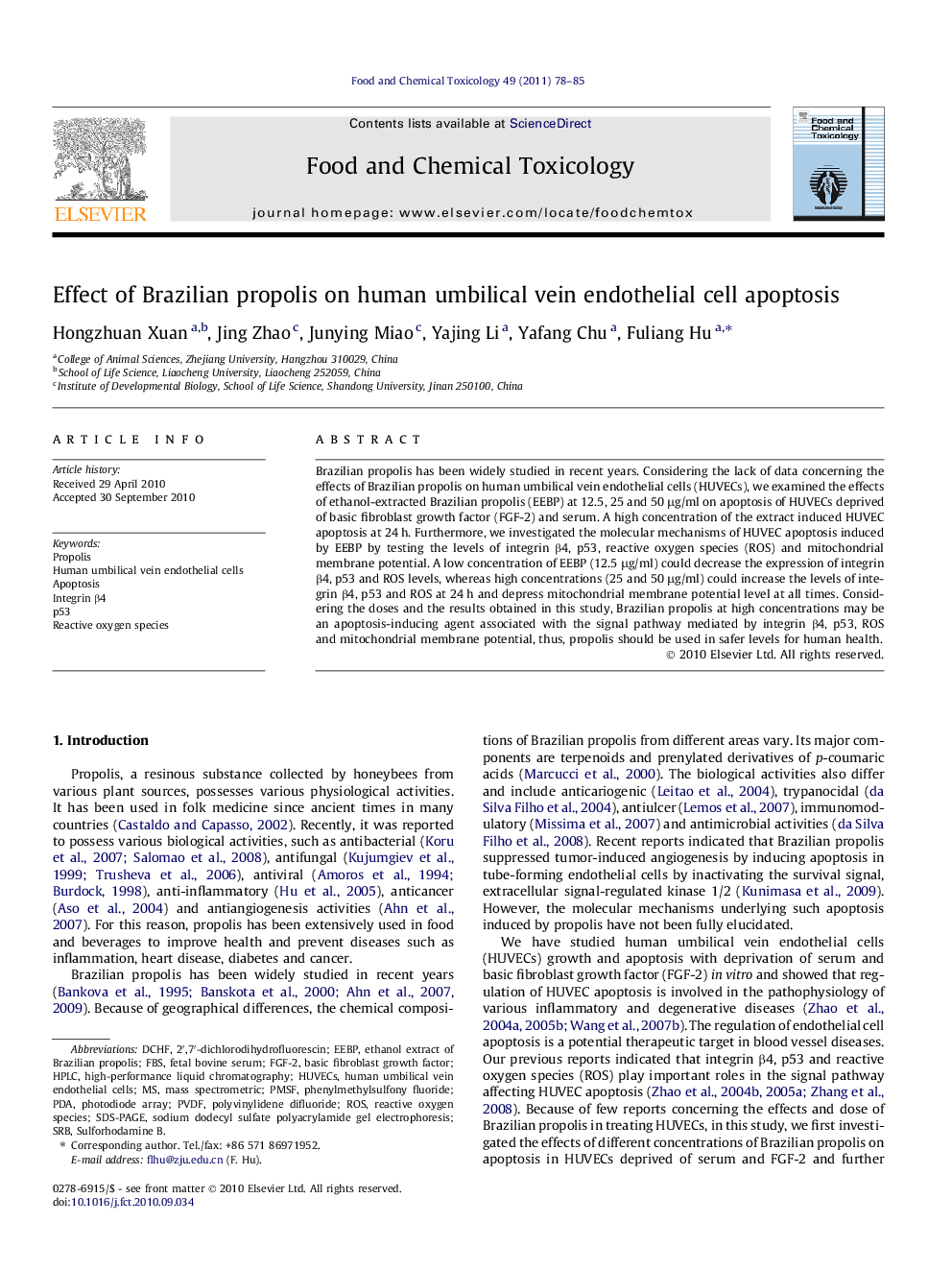| Article ID | Journal | Published Year | Pages | File Type |
|---|---|---|---|---|
| 5853864 | Food and Chemical Toxicology | 2011 | 8 Pages |
Abstract
Brazilian propolis has been widely studied in recent years. Considering the lack of data concerning the effects of Brazilian propolis on human umbilical vein endothelial cells (HUVECs), we examined the effects of ethanol-extracted Brazilian propolis (EEBP) at 12.5, 25 and 50 μg/ml on apoptosis of HUVECs deprived of basic fibroblast growth factor (FGF-2) and serum. A high concentration of the extract induced HUVEC apoptosis at 24 h. Furthermore, we investigated the molecular mechanisms of HUVEC apoptosis induced by EEBP by testing the levels of integrin β4, p53, reactive oxygen species (ROS) and mitochondrial membrane potential. A low concentration of EEBP (12.5 μg/ml) could decrease the expression of integrin β4, p53 and ROS levels, whereas high concentrations (25 and 50 μg/ml) could increase the levels of integrin β4, p53 and ROS at 24 h and depress mitochondrial membrane potential level at all times. Considering the doses and the results obtained in this study, Brazilian propolis at high concentrations may be an apoptosis-inducing agent associated with the signal pathway mediated by integrin β4, p53, ROS and mitochondrial membrane potential, thus, propolis should be used in safer levels for human health.
Keywords
Integrin β4FBSp53PVDFPDAFGF-2SRBPMSFHUVECSROSphotodiode arrayMass spectrometricSDS-PAGESodium dodecyl sulfate polyacrylamide gel electrophoresisApoptosispolyvinylidene difluoridefetal bovine serumHuman umbilical vein endothelial cellssulforhodamine Bbasic fibroblast growth factorpropolishigh-performance liquid chromatographyHPLCReactive oxygen species
Related Topics
Life Sciences
Agricultural and Biological Sciences
Food Science
Authors
Hongzhuan Xuan, Jing Zhao, Junying Miao, Yajing Li, Yafang Chu, Fuliang Hu,
